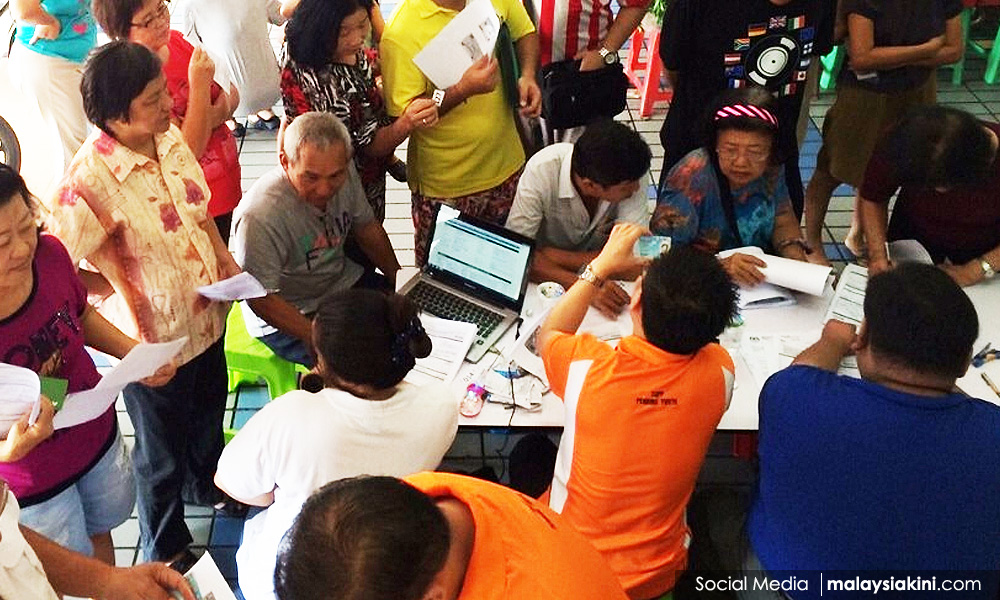
Caretaker prime minister Najib Abdul Razak had announced an addition of new categories and an increase of the 1Malaysia People’s Aid (BR1M) in the BN manifesto to help the people face their rising living costs.
However, the question of the Goods and Services Tax (GST) which has been directly affecting the people, did not become a policy focus in the manifesto.
As we know, the GST collection in 2017 was RM44 billion. The total allocation for the approved BR1M application in 2018 is RM6.12 billion.
From that, think-tank Political Studies for Change (KPRU) found that the allocation for BR1M disbursement alone is already 13.9 percent of the GST collection!
Although there is no problem for the collected GST revenue to be returned to the people’s usage by giving BR1M, this only aids certain groups of people, so why is the BN government not reducing the GST in order to benefit most ordinary people?
Based on the GST collection in 2017, if the GST rate is being reduced by one percent, the GST collection will be reduced by RM7.3 billion. This amount of money is actually more or less the same as the BR1M allocation for 2018.
Furthermore, the BN government’s intention to add new categories and raise the BR1M will raise the allocation. According to KPRU calculations, the total BR1M allocation after adding new categories and increasing BR1M will hit RM11.7 billion. This amount is the same as reducing the GST by 1.5 percent!
Besides that, caretaker deputy prime minister Ahmad Zahid Hamidi also said that the international oil price has increased to US$69 per barrel, as compared with the assumed US$59 per barrel when the budget was being tabled before this.
This means that the federal government has gained a surplus of revenue due to the increase of crude oil prices. Since the source of revenue from petroleum has been increased, the GST which contributes to the national source of revenue should be reduced in order to lessen the burden of the people.
Therefore, in our opinion, it is strange that the BN government attempts to help the people in handling their cost of living by increasing BR1M but not reducing the GST, which has greatly impacted most ordinary people’s livelihoods since its implementation.
At the moment, all goods and services other than those categorised as zero-rated in GST or exempted from GST, are being imposed with GST. Besides this, the GST which is a consumption tax based on the concept of value-adding in every level of consumption in the supply chain from producer to consumer, has resulted in a price increase for goods.
Hence, GST can be said to be the main cause of the rising living cost of the people. If the BN government intends to help alleviate the people’s burden, they should reduce the GST and not increase BR1M.
Furthermore, the increase of allocation for disbursing BR1M, followed by the addition of new categories and increase in BR1M, may result in an increase of the GST rate after election. This is because the BN government does not guarantee that the GST will remain at 6 percent in their manifesto.
By this time, BR1M would not only fail to lessen the people’s burden, but also further burden the people’s livelihoods!
Therefore, in our opinion, if the BN government is sincere in handling the people’s living costs, they will reduce the GST instead of increasing BR1M, so that more people will benefit from the government’s initiatives.
OOI HENG is executive director of the think-tank Political Studies for Change (KPRU). - Mkini



No comments:
Post a Comment
Note: Only a member of this blog may post a comment.